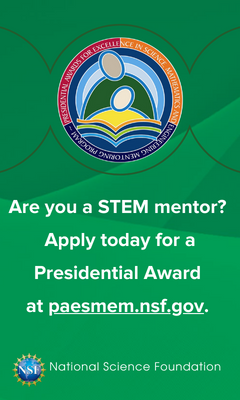June is National Caribbean American Heritage Month, celebrating the contributions of Caribbean immigrants in the United States. Among the largest Caribbean ancestry groups in the U.S. are Puerto Ricans, West Indians, Cubans, Dominicans, Jamaicans, Haitians, Trinidadians and Tobagonians, Bajans, Belizeans, Bahamians, and U.S. Virgin Islanders.

One Caribbean American making significant contributions in the field of science and technology is Xiomara Calderón-Colón. She is a senior materials scientist at the Johns Hopkins Applied Physics Laboratory, specializing in nanomaterials, biomaterials, and microscopy.
Calderón-Colón's work in developing biomaterials for ocular repair earned her the Outstanding Technical Contribution in Industry Award at the 2015 Women of Color STEM Conference.
With one patent, four patents pending, and 20 new ideas disclosed at the Applied Physics Laboratory, Calderón-Colón's innovation in biomaterials, nanomaterials, composite materials, advanced coatings, and surface chemistry has led to national defense solutions.
She has collaborated with experts in the field to deliver highly-effective solutions to complex problems, including the development of a regenerative membrane made from collagen for corneal repair in the Army-funded Eye Protection And Treatment for Combat Healing (PATCH) project.
Calderón-Colón's contributions to biomedicine and material sciences have resulted in numerous publications. She is also active in STEM outreach efforts and serves as a role model for young women aspiring to pursue STEM careers. She graduated from the Universidad de Puerto Rico - Humacao with a Bachelor of Science in Industrial Chemistry in 2003.
Camille Wardrop Alleyne was born in Port of Spain, Trinidad and Tobago and moved to the United States at the age of 17. She obtained her bachelor's and master's degrees in mechanical engineering from historically Black colleges and universities (HBCUs) in Washington D.C. and Florida before beginning her career at NASA.
At NASA, Alleyne has led the lunar commercialization efforts and is responsible for ensuring the sustainability of space commercialization projects.
She has also served as an associate program scientist for the International Space Station at NASA's Johnson Space Center in Houston, Texas. Her achievements have earned her several awards, including recognition as one of the Caribbean's icons in science and technology by Trinidad and Tobago.
In 2007, Alleyne founded the Brightest Stars Foundation which aims to encourage girls to pursue careers in math and science by inspiring them with her own experiences.
In 2019, she visited Bishkek with the support of the U.S. Embassy in the Kyrgyz Republic to commemorate the 50th anniversary of the Apollo 11 Space Mission. Alleyne interacted with young inventors, women in STEM, and researchers from Kyrgyzstan and shared her experiences with NASA programs.
She also conducted a workshop for young people interested in careers in STEM and met with young inventors from the Academy Altyn Tuyun and Satellite Girls, who were building the first satellite in Kyrgyzstan. With the support of the U.S. Embassy, Alleyne conducted virtual workshops for these girls to teach them the basics of engineering and satellite building.
Alleyne also held a press conference to share her experiences with NASA programs and the role of women in space. She also had a networking meeting with local researchers from various institutions, including the National Academy of Sciences, Ministry of Education and Science, and Central-Asian Institute for Applied Geosciences.

